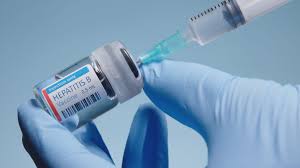
The World Health Organization (WHO) has announced its commitment to ensuring that 80% of countries establish robust Mental Health and Psychosocial Support (MHPSS) systems by the year 2030.
In a message delivered on Thursday, Dr. Mohamed Janabi, the WHO Regional Director for Africa, emphasized the importance of mental health, stating that it is fundamental to human resilience, dignity, and overall well-being.
This year, the theme “Access to Service: Mental Health in Catastrophes and Emergencies” serves as a critical reminder of the urgent need to prioritize mental health before, during, and after crises.
Dr. Janabi highlighted that outbreaks, conflicts, and natural disasters can have devastating impacts on individuals and communities, leading to displacement, disruption of social support systems, family separations, grief, and emotional distress.
While most people will experience psychological stress in such situations, it is estimated that one in five will encounter a mental health condition that necessitates professional intervention.
“The integration of mental health and psychosocial support into emergency preparedness and response in the region remains inadequate.
He added that the African region carries the world’s heaviest burden of public health emergencies, with more than 100 major events each year, from Ebola to cholera and from floods to armed conflict. These emergencies strain fragile health systems, disrupt economies and place immense pressure on mental health and well-being.
He said in May 2024, the World Health Assembly approved a landmark resolution calling for MHPSS to be fully integrated into preparedness, response and recovery efforts, ensuring services reach even the most fragile and conflict-affected settings. The Regional Framework for Mental Health provides further guidance, encouraging member states to embed MHPSS in disaster risk reduction and health system strengthening.
He states that 11countries in the region already include MHPSS in national disaster preparedness plans, while several are integrating services into primary health care.


